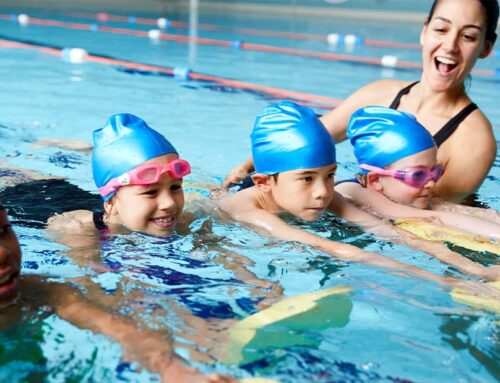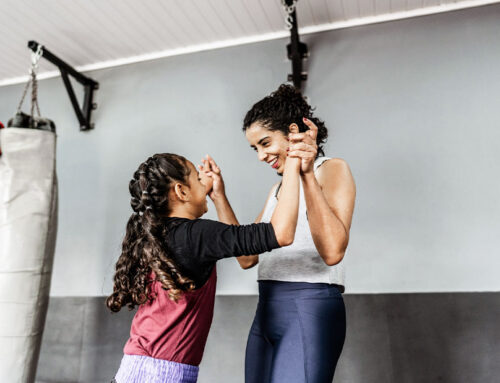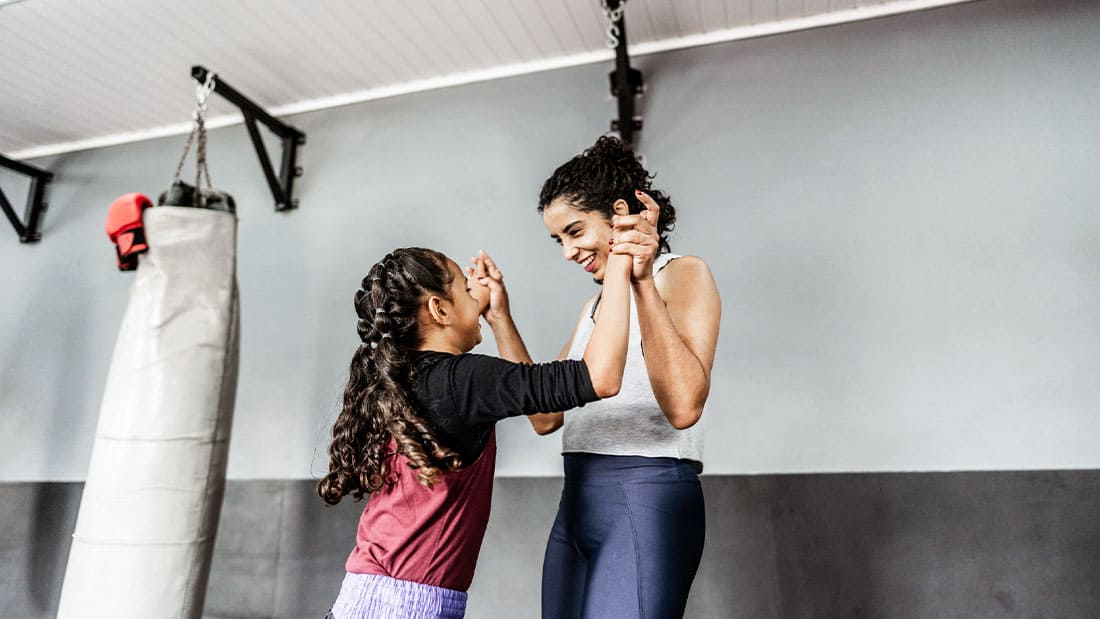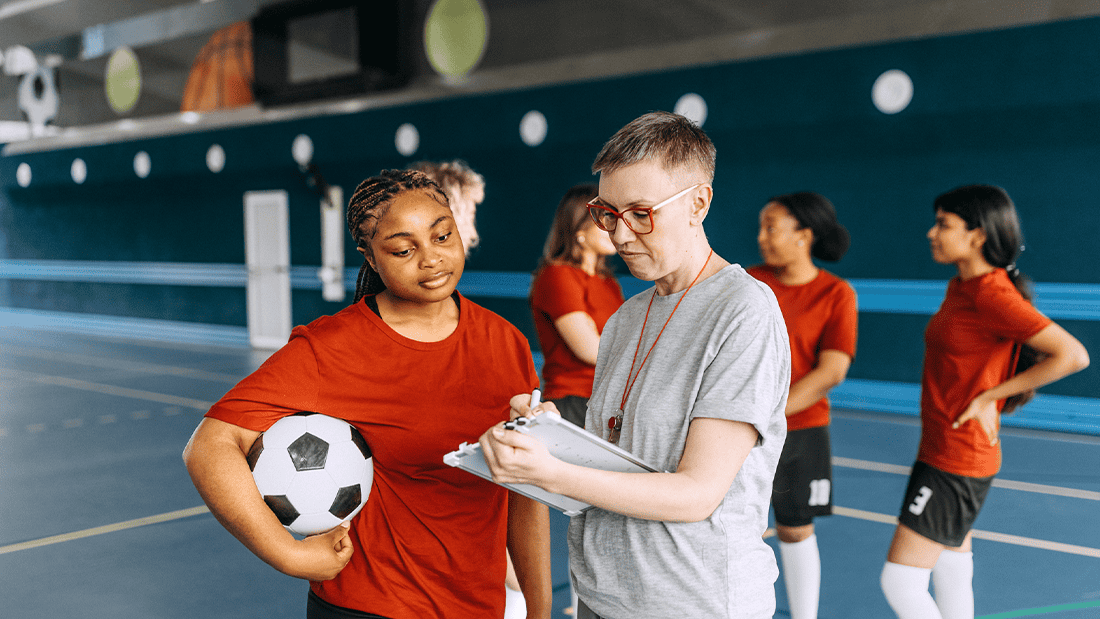Play isn’t just fun and games. It’s a critical part of the human experience that builds certain physical, mental and relational skills we’ll draw from for the rest of our lives. In one recent article on play, we defined the five criteria an activity must meet to truly qualify as play. In another, we outlined how play has become such a rarity in the life’s of many American children, and examined the connection between that and increasing rates of depression and anxiety among our youth.
Now, let’s examine how the presence of a parent can change the way a child plays. While parents certainly should play with their children, and children should learn to play by themselves, it seems the most beneficial type of play for a child from a psycho-social development is with other children away from the attention of adults.
A study published in the American Journal of Preventative Medicine examined the play of 2,712 children in parks located around Durham, North Carolina. The researchers found that when a child had other children playing near them, the odds of them engaging in higher physical activity became 3.67 times more likely. However, if a child was supervised by an adult, their odds of engaging in vigorous play drastically decreased. This is largely because adult supervisors in the modern age have become so attentive and risk-averse they’ve born another term—the “helicopter” parent. This parent constantly hovers in the vicinity of their child, and often prevents or impedes the organic play occurrences that lead to vigorous play. They may discourage “risky” play like climbing, or constantly interrupt made-up games to change rules or influence outcomes. Once this becomes a pattern, the child will become more self-conscious and resistant about engaging in certain types of play, as they know their parent will disapprove.
This type of parenting doesn’t just hamper a child’s physical development—it also stunts them emotionally, too. A study published in the journal Developmental Psychology found over-controlling parenting often negatively affects a child’s “ability to manage his or her emotions and behavior”.
“Helicopter parenting behavior we saw included parents constantly guiding their child by telling him or her what to play with, how to play with a toy, how to clean up after playtime and being too strict or demanding,” lead study author Nicole B. Perry, PhD, told ScienceDaily. “The kids reacted in a variety of ways. Some became defiant, others were apathetic and some showed frustration.” Other research has found that having “helicopter” parents increases a college student’s odds of anxiety, depression, and life dissatisfaction.
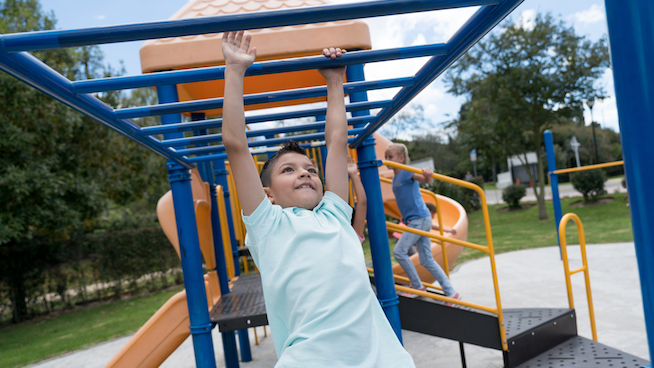
“There’s increased fear something awful will happen to our children if someone’s not watching them,” says Dr. Peter Gray, a research professor of psychology at Boston College and author of the book Free to Learn: Why Unleashing the Instinct to Play Will Make Our Children Happier, More Self-Reliant, and Better Students for Life. However, statistics show the world today is safer for a kid than it’s ever been. Despite that fact, the idea that parents are suddenly going to cut their kids loose and let them walk and play around town totally unsupervised isn’t realistic for most families. How then can a parent supervise their child’s play without compromising it?
Gray likes to use the analogy of a lifeguard at the beach. “An adult can be present and if that adult knows how to be present without being present, or obviously present, (they’re like) a lifeguard at the beach,” Gray says. “The kids playing on the beach are not aware of the lifeguard on the beach. But the lifeguard is there if something truly dangerous happens—if someone is drowning, if someone has a heart attack if someone is trying to kill somebody else. The lifeguard is aware of what’s happening, but is not intervening unless it’s really serious.”
This may be a tough transition for certain parents, as it will require them to suppress some of their overprotective tendencies, but the truth is kids are hardwired to engage in appropriate amounts of risk and expose themselves appropriate amounts of fear. This is a fundamental benefit of play. “Natural selection has designed children to play in risky ways so they learn how to deal with risk. I can do this thing that stretches my physical and emotional abilities, I can do it. What you’re practicing is controlling your mind and body in a somewhat fear-inducing situation. But it’s a fear-inducing situation that you can control, you put yourself there,” Gray says. “What you’re learning is you can deal with feeling fear, you can hold yourself together.”
Adventure playgrounds force parents to be hands-off. These spaces, which are also referred to as “junkyard playgrounds,” are designed to allow for unrestricted and risky play. They’ve long been a staple in countries like Denmark, but they’re beginning to crop up around the United States. Adventure playgrounds often include exciting elements which have been banned or reduced in many modern playgrounds, but also plenty of natural features like rocks, trees, sand and mud plus tools like nails, boards, saws and hammers. Some have rope swings, zip-lines or trampolines. Other than a couple certified teen or adult playworkers on-site who ensure the risk of serious injury never veers too high, kids pretty much have their run of the place. This video on play:groundNYC, an adventure playground on New York’s Governors Island, outlines the concept:
Parents at play:groundNYC are not allowed inside the actual play area, but are free to watch from a shady patch of grass. Gray says much can be learned from watching how the trained playworkers at adventure playgrounds oversee play. “They’re trained like a lifeguard on the beach. They watch for anything that’s truly dangerous and (they) remove hazards—make sure there’s no rusty nails sticking up, or remove dead branches from a tree that (kids) could be climbing up. It’s a relatively safe place to train in dangerous ways,” Gray says. “Playworkers know how to make these kind of judgements. They won’t break-up a little quarrel. If it’s a serious fight, they’ll break it up.”
Photo Credit: andresr/iStock
READ MORE:
RECOMMENDED FOR YOU
MOST POPULAR
Play isn’t just fun and games. It’s a critical part of the human experience that builds certain physical, mental and relational skills we’ll draw from for the rest of our lives. In one recent article on play, we defined the five criteria an activity must meet to truly qualify as play. In another, we outlined how play has become such a rarity in the life’s of many American children, and examined the connection between that and increasing rates of depression and anxiety among our youth.
Now, let’s examine how the presence of a parent can change the way a child plays. While parents certainly should play with their children, and children should learn to play by themselves, it seems the most beneficial type of play for a child from a psycho-social development is with other children away from the attention of adults.
A study published in the American Journal of Preventative Medicine examined the play of 2,712 children in parks located around Durham, North Carolina. The researchers found that when a child had other children playing near them, the odds of them engaging in higher physical activity became 3.67 times more likely. However, if a child was supervised by an adult, their odds of engaging in vigorous play drastically decreased. This is largely because adult supervisors in the modern age have become so attentive and risk-averse they’ve born another term—the “helicopter” parent. This parent constantly hovers in the vicinity of their child, and often prevents or impedes the organic play occurrences that lead to vigorous play. They may discourage “risky” play like climbing, or constantly interrupt made-up games to change rules or influence outcomes. Once this becomes a pattern, the child will become more self-conscious and resistant about engaging in certain types of play, as they know their parent will disapprove.
This type of parenting doesn’t just hamper a child’s physical development—it also stunts them emotionally, too. A study published in the journal Developmental Psychology found over-controlling parenting often negatively affects a child’s “ability to manage his or her emotions and behavior”.
“Helicopter parenting behavior we saw included parents constantly guiding their child by telling him or her what to play with, how to play with a toy, how to clean up after playtime and being too strict or demanding,” lead study author Nicole B. Perry, PhD, told ScienceDaily. “The kids reacted in a variety of ways. Some became defiant, others were apathetic and some showed frustration.” Other research has found that having “helicopter” parents increases a college student’s odds of anxiety, depression, and life dissatisfaction.

“There’s increased fear something awful will happen to our children if someone’s not watching them,” says Dr. Peter Gray, a research professor of psychology at Boston College and author of the book Free to Learn: Why Unleashing the Instinct to Play Will Make Our Children Happier, More Self-Reliant, and Better Students for Life. However, statistics show the world today is safer for a kid than it’s ever been. Despite that fact, the idea that parents are suddenly going to cut their kids loose and let them walk and play around town totally unsupervised isn’t realistic for most families. How then can a parent supervise their child’s play without compromising it?
Gray likes to use the analogy of a lifeguard at the beach. “An adult can be present and if that adult knows how to be present without being present, or obviously present, (they’re like) a lifeguard at the beach,” Gray says. “The kids playing on the beach are not aware of the lifeguard on the beach. But the lifeguard is there if something truly dangerous happens—if someone is drowning, if someone has a heart attack if someone is trying to kill somebody else. The lifeguard is aware of what’s happening, but is not intervening unless it’s really serious.”
This may be a tough transition for certain parents, as it will require them to suppress some of their overprotective tendencies, but the truth is kids are hardwired to engage in appropriate amounts of risk and expose themselves appropriate amounts of fear. This is a fundamental benefit of play. “Natural selection has designed children to play in risky ways so they learn how to deal with risk. I can do this thing that stretches my physical and emotional abilities, I can do it. What you’re practicing is controlling your mind and body in a somewhat fear-inducing situation. But it’s a fear-inducing situation that you can control, you put yourself there,” Gray says. “What you’re learning is you can deal with feeling fear, you can hold yourself together.”
Adventure playgrounds force parents to be hands-off. These spaces, which are also referred to as “junkyard playgrounds,” are designed to allow for unrestricted and risky play. They’ve long been a staple in countries like Denmark, but they’re beginning to crop up around the United States. Adventure playgrounds often include exciting elements which have been banned or reduced in many modern playgrounds, but also plenty of natural features like rocks, trees, sand and mud plus tools like nails, boards, saws and hammers. Some have rope swings, zip-lines or trampolines. Other than a couple certified teen or adult playworkers on-site who ensure the risk of serious injury never veers too high, kids pretty much have their run of the place. This video on play:groundNYC, an adventure playground on New York’s Governors Island, outlines the concept:
Parents at play:groundNYC are not allowed inside the actual play area, but are free to watch from a shady patch of grass. Gray says much can be learned from watching how the trained playworkers at adventure playgrounds oversee play. “They’re trained like a lifeguard on the beach. They watch for anything that’s truly dangerous and (they) remove hazards—make sure there’s no rusty nails sticking up, or remove dead branches from a tree that (kids) could be climbing up. It’s a relatively safe place to train in dangerous ways,” Gray says. “Playworkers know how to make these kind of judgements. They won’t break-up a little quarrel. If it’s a serious fight, they’ll break it up.”
Photo Credit: andresr/iStock
READ MORE:

